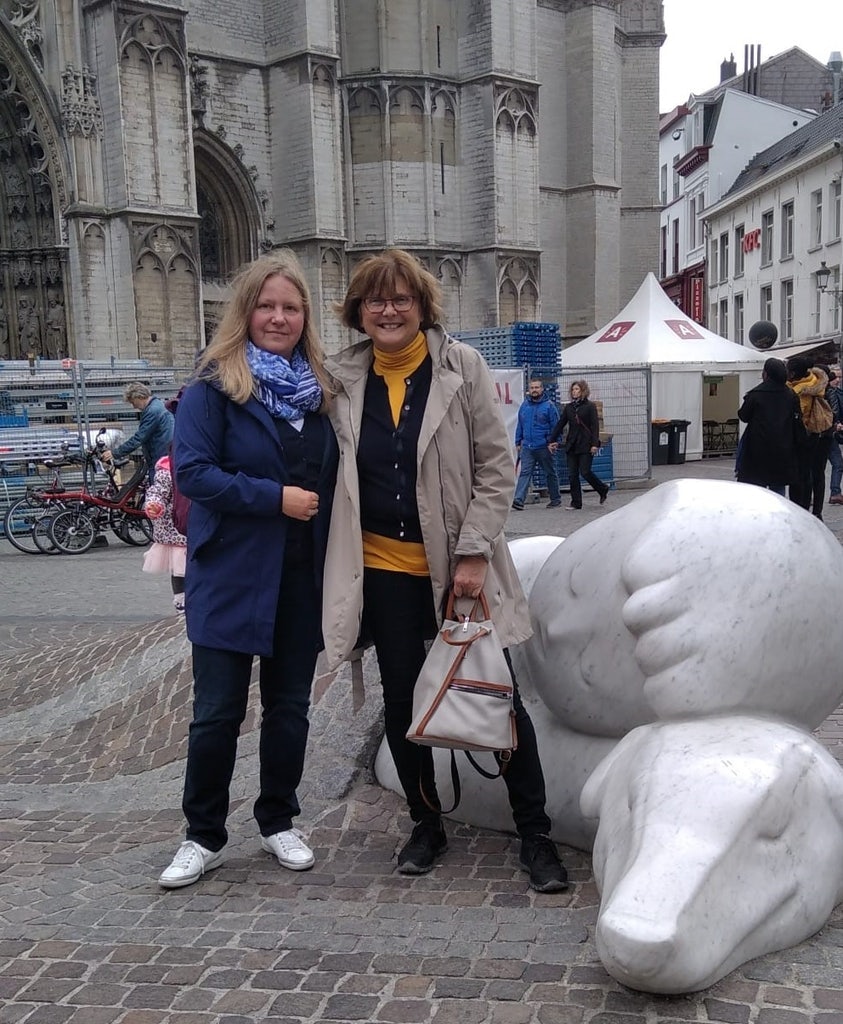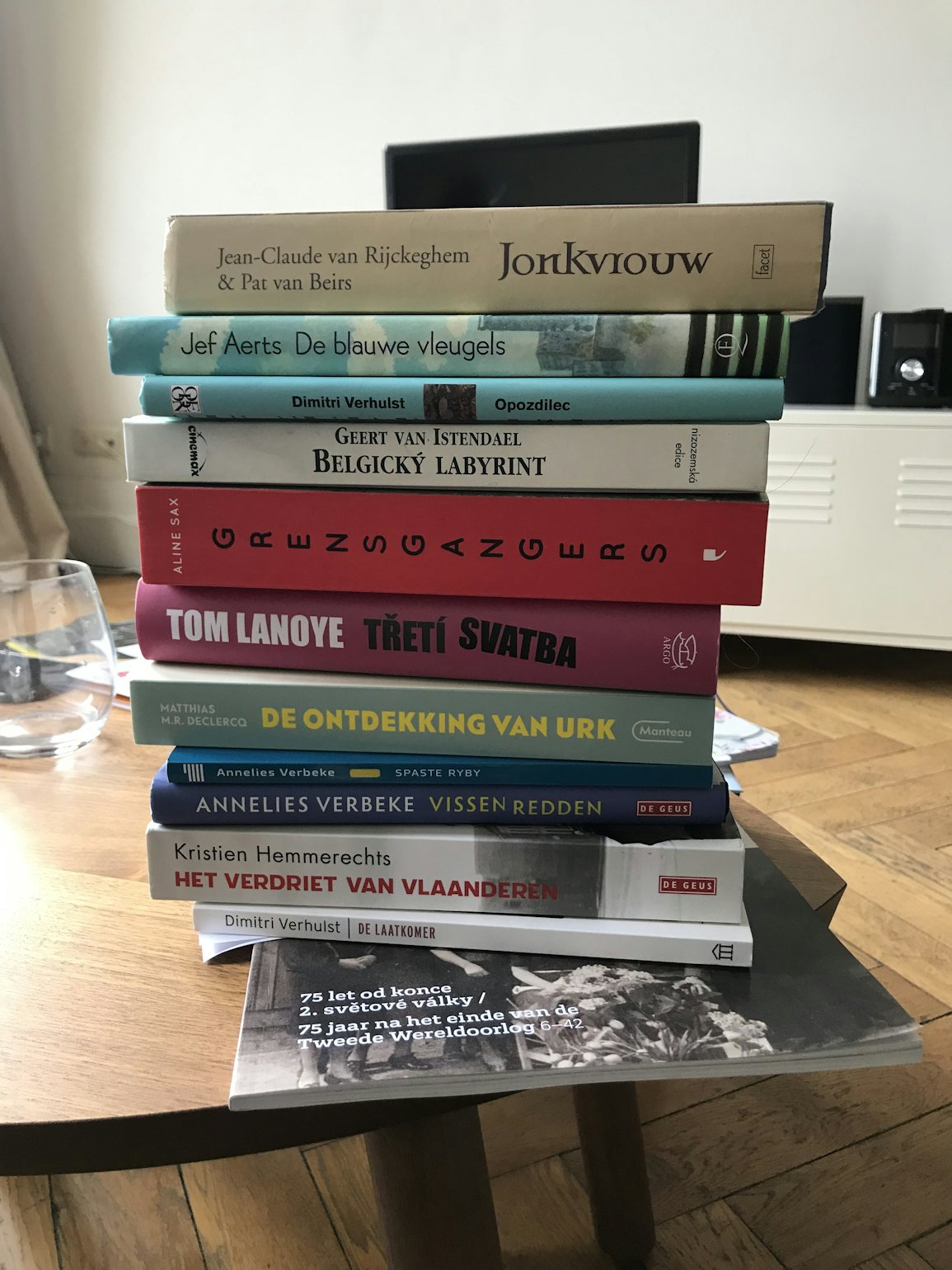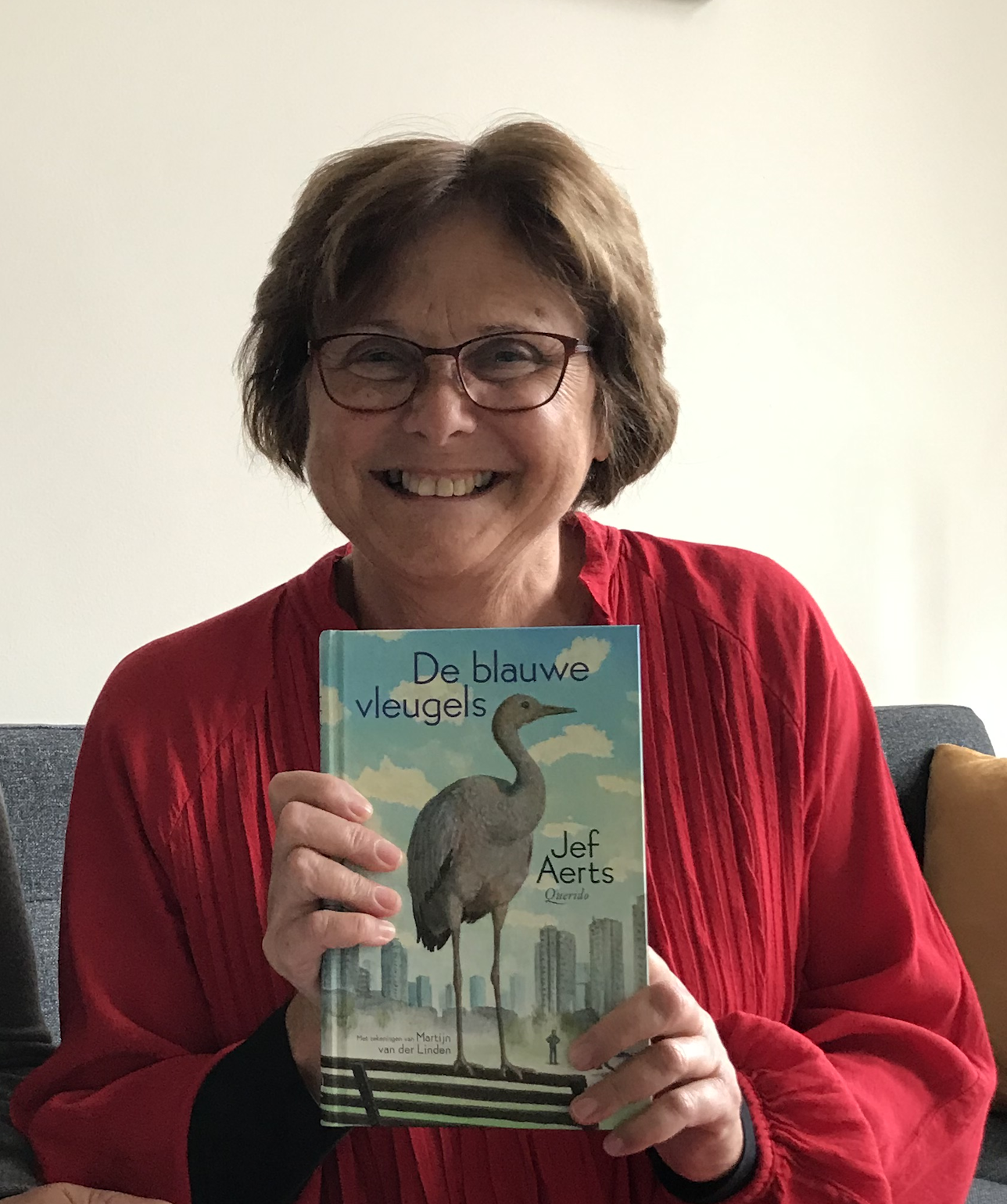'We think something, but often we don’t say it'
If the walls of the Translators’ House could speak, they’d have plenty to say about Lenka Strnadová and Jana Červenková. The duo of literary translators recently stayed in Antwerp, working together on a Czech translation of 'The Just' by Jan Brokken and a sample from 'The Blue Wings' by Jef Aerts. We had a spontaneous but searching conversation with them, in which they revealed their inquisitive natures.

Jana thinks of herself as a fan of Willem Elsschot, while Lenka says she’s more familiar with recent Flemish literature. That proves an excellent combination, as they discovered in their earlier collaborations. They dwelt in the world of 'Aunt Rose' together, a non-fiction work by Paul Glaser in which he wrote about his family’s wartime secret. And in the world of cycle racing, while translating a book about the Tour de France. Lenka’s husband also deserves a mention; he whispered to them the meaning of cyclists’ jargon.
The author looks too
On the coffee table in the Translators’ House are yet more books, which they hope will be translated, or are currently busy translating. They are not annotated. Each member of the duo first reads the book, then sets to work translating on the computer, before asking the other to read what they have done. They offer their comments, and talk about the text with one party in mind, the reader. Although the author is always looking over their shoulders too. What does Jan Brokken mean by this sentence? What is Jef Aerts feeling as he writes this? The Flemish language and Czech differ in imagery as well as in sentence structure, and then the trick is to find the best equivalent. According to Lenka, Flemings and Czechs have the same tendency to gloss over things.
Smaller languages are trending

They are proud to display a copy of the magazine ‘NeBe’, an annual publication supported by the Embassy of the Kingdom of the Netherlands and the General Representation of the Government of Flanders in the Czech Republic. The title is a contraction of ‘the Netherlands and Belgium’, but it also means ‘heaven’ in Czech. In the 2020 issue, work by Lisa Weeda, Aya Sabi and others is given in two languages in the section about young literary translators.
There was freedom, the people were friendly, and the bookshops were packed.Lenka Strnadová
After the fall of the Iron Curtain, English-language literature in particular was eagerly translated into Czech. But now the smaller languages are trending in Czechia; they both agree on that. For Jana a love of Dutch dates back to her time at school. Lenka discovered the language when she started travelling to the West after the fall of the Wall. In 1992 she found herself in the Netherlands and liked it enormously. ‘There was freedom, the people were friendly, and the bookshops were packed,’ she says. Shortly after that she looked for pen friends with whom she could correspond in our gentle language. It was their love of Dutch that brought Jana and Lenka together.
We love the beauty in the simplicity of Jef Aerts' sentences.Jana Červenková

Two decades later, here they are in Antwerp. They will shortly meet author Jef Aerts, whose style they admire. ‘We love the beauty in the simplicity of his sentences. His humour and poetic imagery are delightful too,’ says Jana. Which brings her back to Elsschot, and to 'Cheese', the most translated Flemish novel of all time. The Czech translation by Lida Faltová in 1936 was one of the first. She loves the dry and yet gentle humour of Elsschot’s depiction of Frans Laarmans, as a way of making the case for the ordinary person. ‘That’s another thing our cultures have in common,’ she says. ‘And that connection makes translating from Dutch easier.